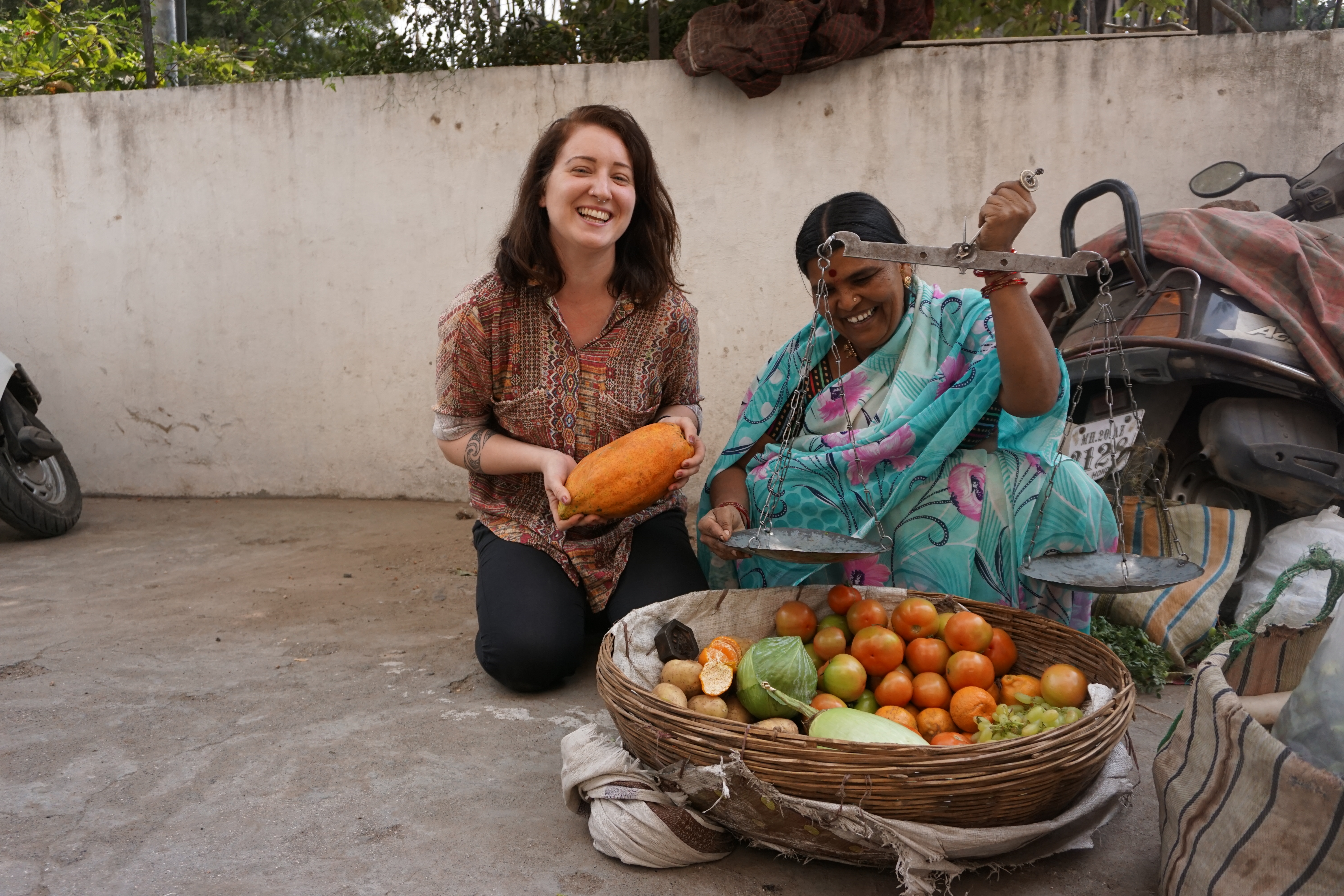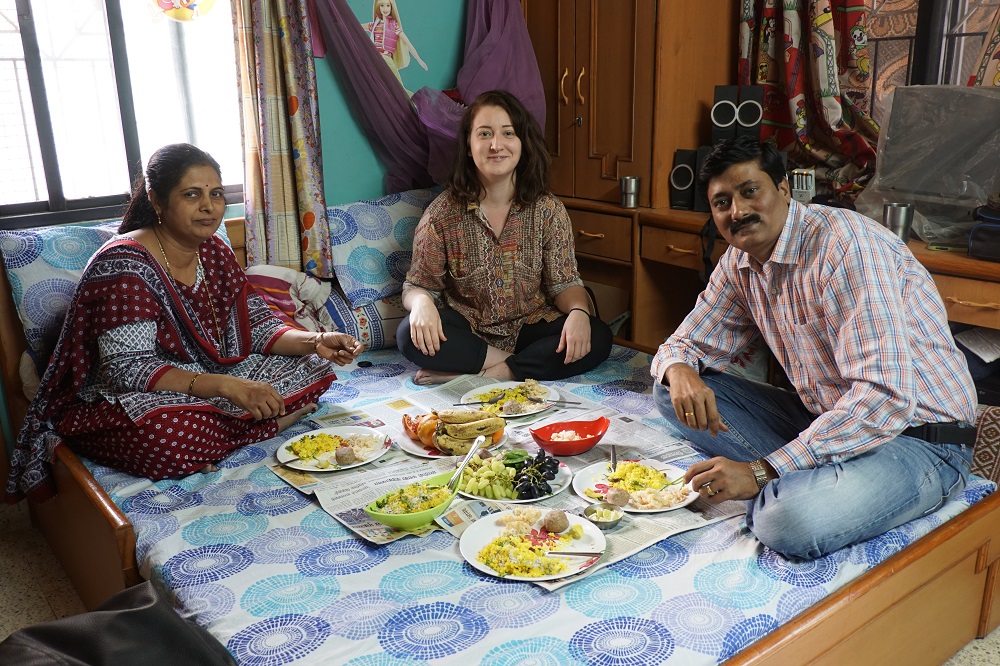MY STORY: Moving to India & Living With an Indian Family Taught Me the Real Meaning of Gratitude
Since moving to India it’s occurred to me that I say ‘please’ and ‘thank-you’ a lot.

Since moving to India it’s occurred to me that I say ‘please’ and ‘thank-you’ a lot. Maybe it’s down to my cultural background or maybe it’s a consequence of how I’ve been raised by my parents. Whatever the reason is, it’s not something that I need to make a conscious effort to do. Formalities (as I’ve come to call them in India) flow from my mouth effortlessly, probably even habitually.
I’m not saying this to gloat nor to show off how ‘well-mannered’ I am. In fact, this realisation I’ve had has made me think that maybe it’s time that I modified my manners. Put my ‘pleases’ on pause. Go tee-total on my ‘thank yous.’
Here’s why.
 I’ve learnt that gratitude is less about what you say and more about what you do.
I’ve learnt that gratitude is less about what you say and more about what you do.
Please and thank-you are not so frequently used in India. I’ve been scolded a few times: “you are too formal,” “your formalities are not necessary.” Many times my ‘please’ and ‘thank-you’ have fallen on deaf ears, been a foreign currency not accepted in these parts. In India it’s common to be met with silence when you offer your seat on a crowded train or to be given a blank stare when you look in disbelief at the shop keeper who didn’t request but demanded you pay him 20 rupees for your bottle of water.
If I were back home (in the UK) these sorts of formality-less encounters would shock me. I would probably tut and complain in disbelief about the sheer rudeness. I may even have made a point of uttering a loud ‘PLEASE’ or ‘THANK YOU’ just to call the perpetrator out on their lack of manners just to make it clear that I expected a verbal recognition of gratitude and now I’m mad because I didn’t get one.
Despite this, somehow though, I’ve seen more gratitude being shown each day in India then I’ve ever heard elsewhere.
So it made me question what exactly are good manners? Is it about what you say with your mouth? The oral articulation of words that have been drilled in to you since birth. Are good manners the words that some so habitually say with not much thought behind them? Or, are good manners more about your intention? The silent meanings driving your actions.
For example, which shows more appreciation; a verbal thank you to your mum for cooking you a nice dinner or waiting for her to sit down before you eat? Or making sure she has a drink with her meal? Or perhaps even taking her plate once she’s finished so that she can enjoy a moments rest?
 Staying with an Indian family taught me that gratitude is less about what you say and more about what you do.
Staying with an Indian family taught me that gratitude is less about what you say and more about what you do.
It’s easy for people to hide behind formalities. I’ve learnt that having the vocal ability to say please and thank you doesn’t automatically make you a pleasant or genuine person. In the absence of formalities, one can quickly see a person’s true character.
It’s easy to say please and thank you as a sign of our gratitude to someone. Being able to show gratitude to someone, however, now that’s something else. Without formalities you’re forced to look out for the subtle signs. The not so obvious ways that people show their gratitude. India is providing me with the perfect opportunity to understand how gratitude is best expressed.
Travel to me is about connecting with people. It’s about understanding cultures and practices unfamiliar to my own. I think that this is something that is crucial to the times we are living in. Times often marked with division and fear of the Other. If I am constantly listening out for the verbal expressions of gratitude then I may miss out on the message being sent that requires me to see and not hear.
Worse still, I may mistake it for rudeness or ignorance and consequently label entire groups of people based on the experience. Failing to realise how gratitude is communicated in other cultures. Don’t get me wrong, you’re going to get rudeness anywhere you go, and India is not an exception. But that’s just a small part of life.
I’m definitely not giving up on my formalities altogether, I think they are a wonderful thing. But I am learning what’s important. And that is the heart.
Like this story? Or have something to share? Write to us: [email protected], or connect with us on Facebook and Twitter.
NEW: Click here to get positive news on WhatsApp!
If you found our stories insightful, informative, or even just enjoyable, we invite you to consider making a voluntary payment to support the work we do at The Better India. Your contribution helps us continue producing quality content that educates, inspires, and drives positive change.
Choose one of the payment options below for your contribution-
By paying for the stories you value, you directly contribute to sustaining our efforts focused on making a difference in the world. Together, let’s ensure that impactful stories continue to be told and shared, enriching lives and communities alike.
Thank you for your support. Here are some frequently asked questions you might find helpful to know why you are contributing?


This story made me
-
97
-
121
-
89
-
167











